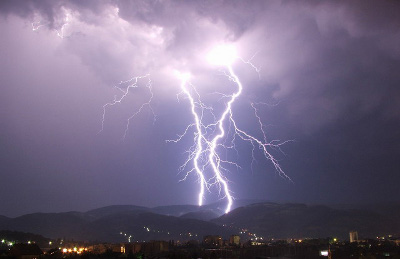9
2009
Who invented Electricity
Unlike the telephone, computer, or television, electricity wasn’t really invented since it is a naturally occurring phenomenon that is easily seen whenever lightning rods are present during a powerful storm. Electrical storms can release more electricity in a single storm than the entire world uses in a year, most of the time storms and lightning is quite safe, but whenever electricity is present, the natural attraction of the current is to the ground, and anything in the way will likely be hit.
From the earliest times people knew that lightning was dangerous, and it was common knowledge that the tallest trees, or tallest buildings would be hit more often than those that were shorter. The reason for this wasn’t discovered until much later but it did give people a healthy respect for the power of lightning or electrical sparks. In ancient time, the Egyptians, Greeks, and Romans believed the electrical charge from catfish or rays were therapeutic for headaches.

Static electricity, which is just one form of electricity, was discovered by accident by a Greek philosopher named Thales of Miletos who in 600BC experimented with rubbing some things such a rod of amber with his hand or another object would attract some light objects such as feathers, and which Thales mistakenly attributed to magnetism instead of electrical charge.

A thousand years later in Baghdad, the Sassanid people discovered that copper and iron suspended in a pottery jar filled with an acidic fluid such as lemon juice, could generate a current that some historians believe was used to electroplate small icons with silver or gold. Known as the Parthian battery, it’s inventor is unknown but is the first clear example of electricity being used by people. Other historians disagree that electroplating was the purpose, instead they believe that electrical current was used in religious ceremonies by connecting a group of batteries to artifacts that when touched would give worshippers a low shock and which could be said to indicate the presence of God.
An English renaissance scientist, William Gilbert rediscovered Thales principles, but correctly identified that electrical charge was responsible, and then named the phenomenon electricus from the Greek word for amber. Benjamin Franklin, one of the presidents of the US, discovered in 1752 that lightning is generated by electricity in a famous kite experiment with an iron key suspended close to the string that he was holding. When lightning strayed close to the key, Franklin would feel the hairs on the back of his hand tingle.

In 1800, an Italian scientist Alessandro Volta, invented the first modern battery that could be used to draw a regular current, and it is in his honor that the method of measuring a unit of electricity, the volt, was adopted. By the 1820s scientists all over Europe were actively experimenting with electricity, and in 1819 Andre-Marie Ampere discovered electromagnetism, quickly followed in 1821 with the invention of the electric motor by Michael Faraday in 1821.

 An article by
An article by 




